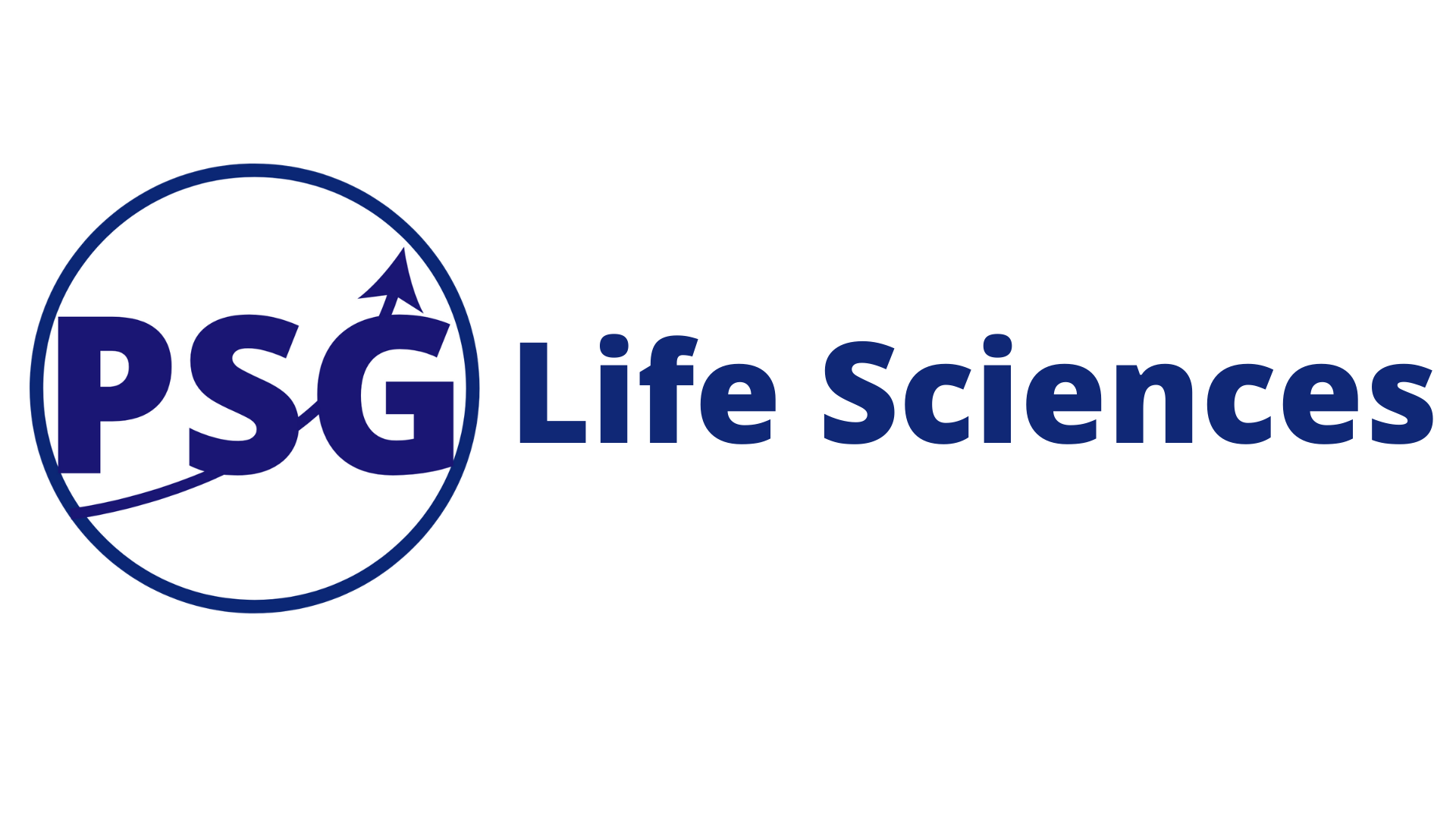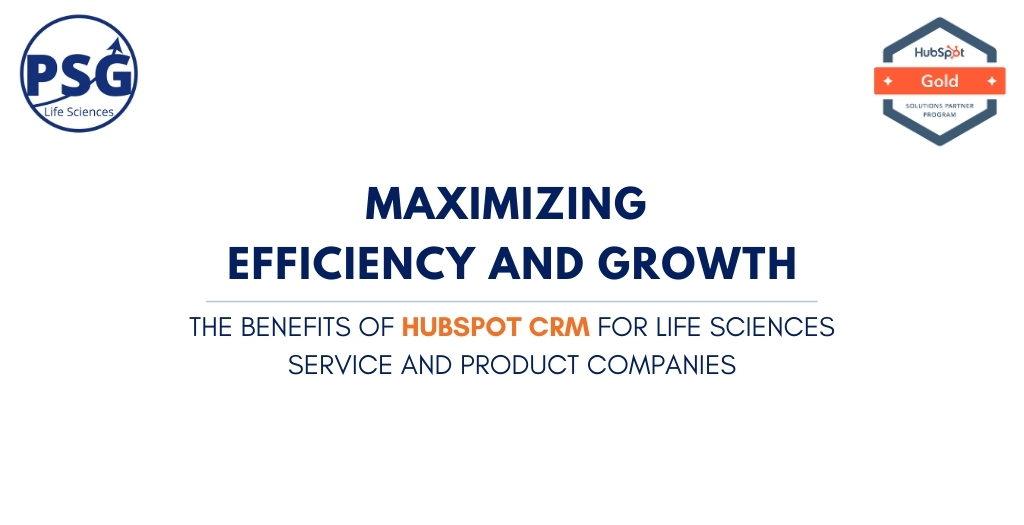In the competitive life sciences “picks and shovels” space, companies are constantly seeking ways to streamline their operations, enhance customer relationships, drive sustainable growth, and maximize their return on marketing and sales investments. Customer Relationship Management (CRM) tools have become indispensable in achieving these goals, and among them, HubSpot CRM stands out as a versatile, powerful, value solution. In this blog post, we will delve into the specific benefits that HubSpot CRM offers to life sciences service and product companies.
1. Centralized Data Management for Enhanced Collaboration
One of the primary advantages of using HubSpot CRM in the life sciences sector is its ability to centralize and organize vast amounts of data. In an industry where information is critical, having a centralized hub for customer interactions, sales data, and marketing insights ensures that teams across different departments can collaborate seamlessly. HubSpot CRM breaks down silos by providing a unified platform where sales, marketing, and customer service teams can access and update real-time information, fostering a more collaborative and efficient working environment.
2. Personalized Customer Interactions with Advanced Segmentation
Life sciences companies deal with diverse customer segments, each with unique needs and preferences. HubSpot CRM offers advanced segmentation capabilities, allowing businesses to categorize their audience based on various criteria such as industry, location, or previous interactions. This level of granularity enables companies to tailor their communication strategies, delivering personalized messages and content that resonate with specific customer groups. By understanding the nuances of their audience, life sciences companies can build stronger relationships and enhance customer satisfaction.
3. Automated Marketing Campaigns for Targeted Outreach
HubSpot CRM goes beyond basic data management by seamlessly integrating with HubSpot Marketing Hub, enabling life sciences companies to create and execute targeted marketing campaigns with ease. Automation features empower marketing teams to set up workflows that trigger personalized emails, content, and follow-ups based on customer behavior. For example, if a prospect shows interest in a particular service, the CRM can automatically send relevant information or schedule a follow-up call. This not only saves time but also ensures that marketing efforts are focused on leads that are most likely to convert, ultimately improving the return on investment (ROI) for marketing campaigns.
4. Efficient Sales Pipeline Management
Navigating the complex sales processes inherent in the life sciences industry requires a robust sales pipeline management system. HubSpot CRM provides a visual and intuitive interface that allows sales teams to track leads, deals, and opportunities throughout the entire sales cycle. By providing a clear overview of the sales pipeline, companies can identify potential bottlenecks, allocate resources effectively, and make informed decisions to accelerate the sales process. Real-time updates and notifications keep the entire sales team in the loop, ensuring that everyone is on the same page and can respond promptly to changes in the sales pipeline.
5. Data-driven Decision Making with Analytics and Reporting
In the highly regulated and data-intensive field of life sciences, making informed decisions is paramount. HubSpot CRM offers robust analytics and reporting tools that provide valuable insights into customer behavior, sales performance, and marketing effectiveness. With customizable dashboards, companies can track key performance indicators (KPIs) relevant to their specific goals. This data-driven approach empowers decision-makers to identify trends, evaluate the success of marketing campaigns, and adjust strategies accordingly. By leveraging actionable insights, life sciences companies can continually optimize their processes for better outcomes.
6. Seamless Integration with Third-party Applications
Life sciences companies often rely on a suite of specialized tools and applications to manage various aspects of their operations. HubSpot CRM’s open architecture allows for seamless integration with various third-party applications, including laboratory information management systems (LIMS), enterprise resource planning (ERP) software, e-commerce platforms, and project management tools. This interoperability ensures that HubSpot CRM becomes a central hub, connecting and enhancing existing workflows rather than disrupting them. By integrating with other essential tools, life sciences companies can create a unified ecosystem that maximizes efficiency and minimizes manual data entry.
7. Compliance and Security Measures
Data security and compliance are paramount concerns in the life sciences industry, where sensitive information and regulatory requirements must be diligently adhered to. HubSpot CRM prioritizes data security, providing robust measures to safeguard customer data. With features such as two-factor authentication, role-based access control, and regular security audits, HubSpot CRM ensures that life sciences companies can confidently use the platform without compromising on compliance. This commitment to security aligns with the industry’s stringent standards, giving companies peace of mind as they manage and analyze sensitive data.
In conclusion, HubSpot CRM offers a comprehensive and tailored solution for life sciences service and product companies aiming to enhance their operations, customer relationships, and overall growth. By centralizing data, personalizing interactions, automating marketing campaigns, managing sales pipelines efficiently, and providing robust analytics, HubSpot CRM addresses the unique challenges of the life sciences sector. The platform’s seamless integration capabilities and commitment to data security further position it as a valuable asset for companies navigating the complexities of the life sciences industry. As technology continues to play a pivotal role in shaping the future of the life sciences sector, embracing a versatile CRM solution like HubSpot CRM is not just a choice but a strategic imperative for those seeking sustainable success in a dynamic and competitive landscape.

